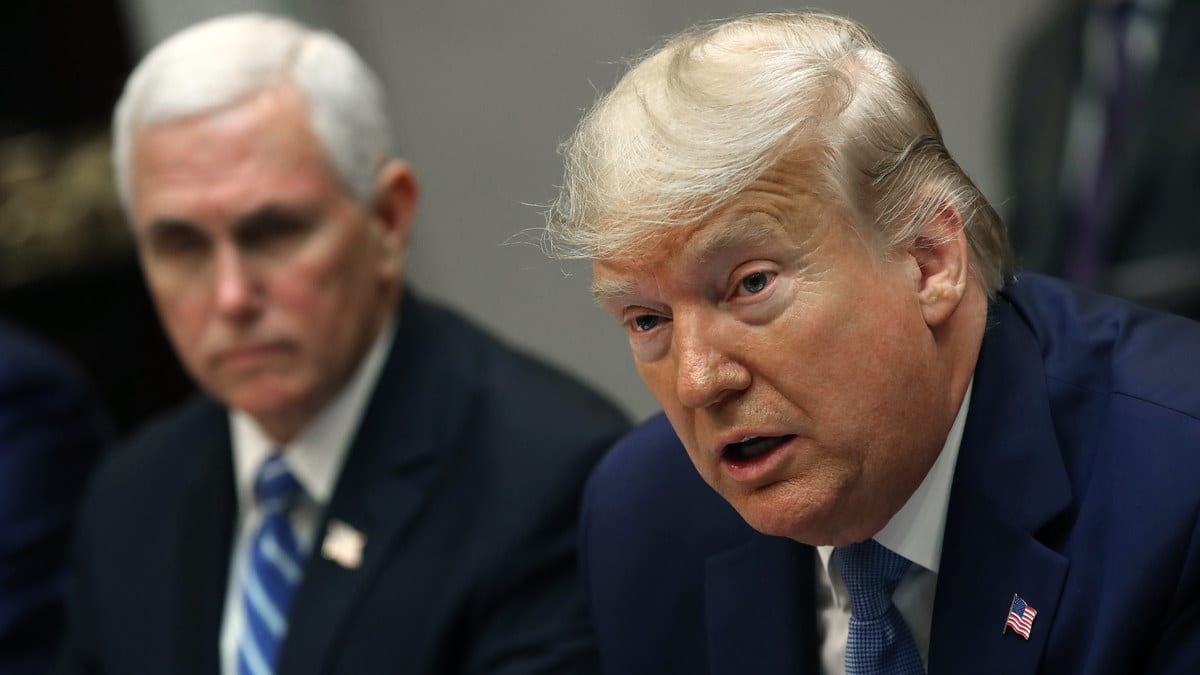“We have it totally under control,” Donald Trump declared on Jan. 22.
He did not have it totally under control.
This is what many of us always feared. While my conservative friends were boasting of judges, jobs, and dead terrorists, my concerns were always premised on a more fundamental, if intangible, deficiency: He’s a bad leader.
As he struggles to lead the nation during this coronavirus crisis, Trump’s weaknesses in this regard are on full display.
Let’s start with character. Rather than being some old-fashioned nicety, this matters, because during moments of crisis leaders must summon their moral authority. Think of Churchill during the blitz. Think of Reagan after the Challenger exploded. Think George W. Bush after 9/11.
Flowing from character, great leaders also have something else in common: words. It was said of Churchill that, “He mobilized the English language and sent it into battle.” It’s hard to imagine that ever being said about Trump (unless we’re talking about mean tweets). Aside from saying “Character is destiny,” my stock answer as to why I couldn’t support Donald Trump was also based on his rhetoric, one that failed to inspire trust, unify the nation, and heal the social fabric.
Great leaders—Lincoln, Churchill, Reagan—understood that this wasn’t just part of the job. It was THE job. That’s why I always defended Barack Obama’s “Don’t tell me words don’t matter” line. Words do matter. It has been my observation that the more seriously you value a man’s words, the less likely you are to champion Trump—a man who cheapens and debases words regularly and without remorse.
As Joe Biden said on Thursday, “Public fears are being compounded by a pervasive lack of trust in this president, fueled by the adversarial relationship with the truth he continues to have.” Biden’s concern about “public fears” is not some esoteric thing. Look no further than the market for real world evidence.
But the markets aren’t the only thing he has roiled. Trump’s declaration that “Anybody that needs a test gets a test,” may supplant Obama’s “If you like your doctor, you can keep your doctor,” as the bigger political lie of the last decade. But heck, Trump could out-lie Obama before breakfast. When a president contradicts public health officials, spreads misinformation during an Oval Office speech, squanders our trust with fake news about fake news, trolls and name-calls his rivals on Twitter, and when he talks about hoaxes and the deep state (all while still managing to get in 18 rounds of golf!), he engenders distrust and stokes anxiety.
Of course, Trump’s war on truth is actually more complicated—and more dangerous—than the normal politicians' prevarication.
Rather than accepting the hard truths of reality, Trump invents an alternate one. In many cases, he succeeds by almost magically willing it into existence. Eventually, though, reality sets in. Eventually, though—and the time might finally be upon us—political gravity reasserts itself. A confidence game only works when people have confidence in you. And the danger of faking it till you make it is that, rather than slow attrition, what you get is a rapid implosion.
Another related problem Trump now faces is this: People are more willing to endure hard times and sacrifice not just when they believe you but when they believe you have their best interest at heart. That’s what servant leadership is all about. Trump’s interest, though, is transparently selfish. We saw this on display when he admitted he would prefer to have people remain on board a cruise ship, for fear that allowing them to return to America would make him look bad. “I like the numbers being where they are,” he said.
Is a perfect storm brewing? Are the chickens coming home to roost? For the first time, a lot of Americans are being forced to reckon with the seriousness of a lack of leadership. This is the first time they have had to personally pay any sort of price for this presidency.
Regardless of how this coronavirus pandemic goes from here—and I am hoping it goes well for us all!—concerns about Trump’s ability to manage a serious crisis have been vindicated. For most of us, we will weather this storm. America could still dodge a bullet. Churchill famously said, “Nothing in life is so exhilarating as to be shot at without result.” This is less true, however, when you never know when the next shot will be fired.
The best-case scenario for this crisis is that it serves as a sort of stress test that lets us know where we stand.
And so far, it’s a test we are failing. It would be hard to imagine a worse person to oversee things right now than Donald J. Trump.

